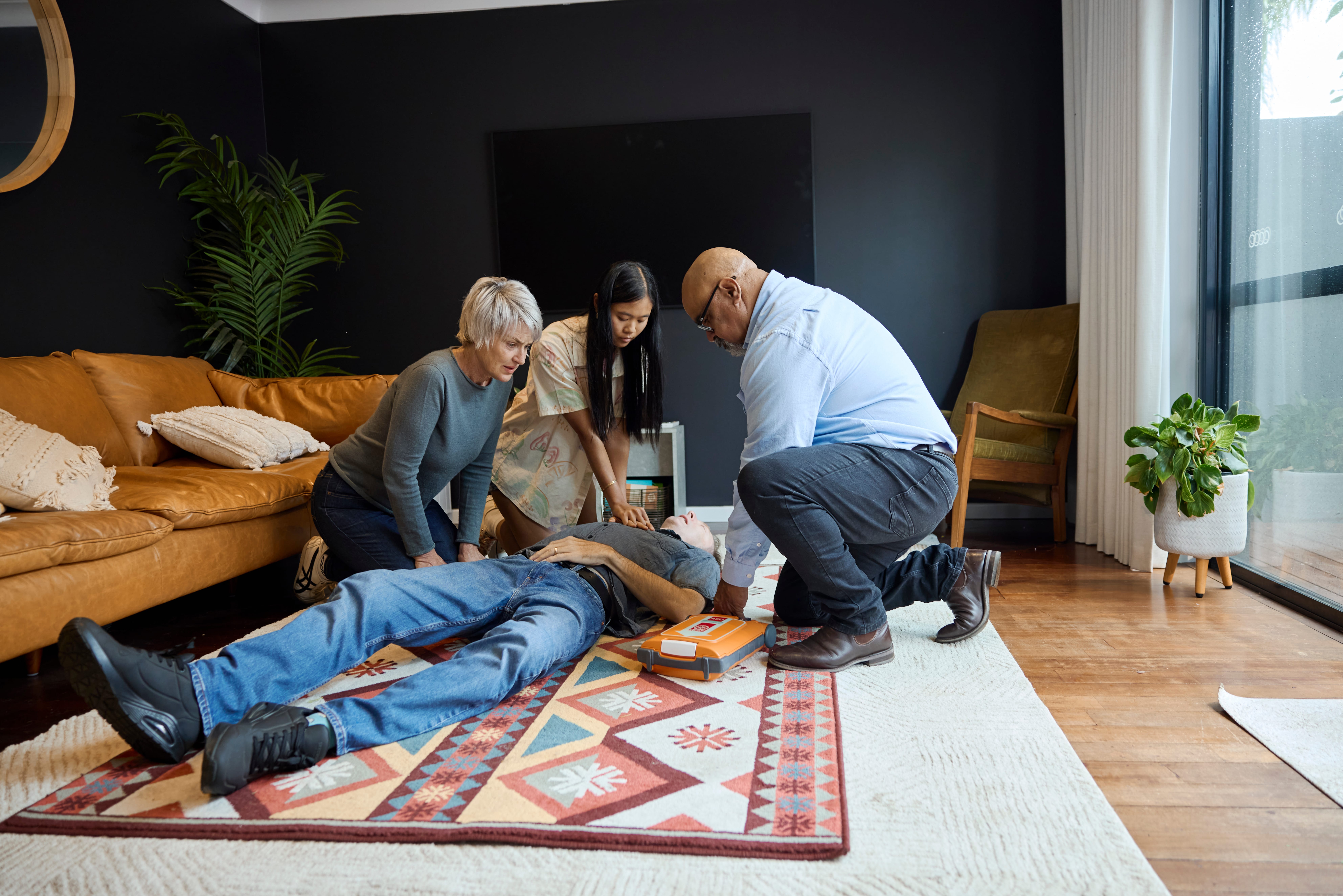WA a world-leader in out-of-hospital cardiac arrest survivability: new report
- St John WA recorded its highest survival result historically of 39.6% in the most ‘saveable’ cohort of patients,
- SJWA survival results are among world leaders such as Seattle & King County EMS in the United States, Denmark and Norway.
- In WA, 142 patients survived their cardiac arrest – up 11 per cent on last year and the highest result in five years.
New records for St John WA (SJWA) in cardiac arrest response and survivability have been set in 2023.
SJWA recorded its highest survival result historically, of 39.6% in the Utstein comparator group, which is used for international benchmarking of cardiac arrest performance.
It sets SJWA among best performing cardiac arrest emergency responders across the globe, such as Seattle & King County EMS in the United States, Denmark and Norway, closely followed by Ambulance Victoria.

The Utstein comparator group reflects a cardiac arrest patient cohort who are regarded as the most likely to have favourable survival outcomes and facilitates more meaningful benchmarking against other systems.
Patients in the Utstein group are witnessed collapsing by bystanders, have an initial shockable rhythm, and receive resuscitation from ambulance crews.
Importantly, bystanders delivering CPR and using a community defibrillator (AED) vastly increase the likelihood of cardiac arrest survival – with bystander CPR and a shock being delivered from an AED prior to arrival of an ambulance crew each being associated with more than twice the chance of survival.
Encouragingly, those in Western Australia with a community AED applied prior to ambulance arrival increased to its higher number ever of 16 per cent, this year.
An impressive 43 per cent of patients who had a cardiac arrest in a public place had an AED applied. This shows how the widespread presence of publicly available AEDs in the community is helping to deliver life-saving care to cardiac arrest patients, through initiatives such as SJWA State Defibrillator Network.
The State Defibrillator Network is a free service for individuals, businesses and community groups to register their AED with SJWA with the aim of getting defibrillators to cardiac arrest victims in the vital minutes before ambulance crews arrive.
Almost all – 94 per cent – cardiac arrests were recognised by call-takers in the SJWA State Operations Centre (SOC) and escalated to ambulance crews as a life-threatening priority.
The moment a cardiac arrest call is recognised, SOC call-takers also deliver CPR instructions over the phone and help direct bystanders to any nearby AEDs, as well as notify any nearby first-aid trained Community First Responders on the St John First Responder app who can opt-in to assist.
SJWA continues to develop world-leading rates of bystander CPR – in more than 80 per cent of patients where SJWA ambulance crews attempted resuscitation.
Each year, SJWA provides education and training to about 200,000 Western Australians on how to respond to an out-of-hospital cardiac arrest, of which 40 per cent is provided through First Aid Focus, a free in-school age-appropriate education program delivered by SJWA.
“It is incredibly encouraging to see rates of bystander CPR and community AED use increase each year as community intervention has the biggest impact on cardiac arrest survival outcomes,” said Jason Belcher, SJWA Resuscitation Improvement Specialist and Paramedic.
“But more can still be done, and that’s why we encourage people to ‘Call. Push. Shock’ as part of international campaigns for Restart a Heart Day and Shocktober, because it is everyone’s responsibility to step forward and help in a cardiac emergency.”
Ultimately, 142 Western Australians survived their cardiac arrest, up 11 per cent on last year and the highest result in five years.
It was also the first time 30-day survival in rural/regional WA (11.4 per cent) exceeded survival in the metropolitan area (11.1 per cent), since OHCA annual reporting began in 2016.
New in this year’s OHCA Report 2023:
- Two survivor stories and Chain of Survival video.
- A new patient journey infographic with Key Statistics.
- SJWA’s work with community to support response to out-of-hospital cardiac arrest.
- Breakdown of all OHCA patient cohorts, including Utstein.
